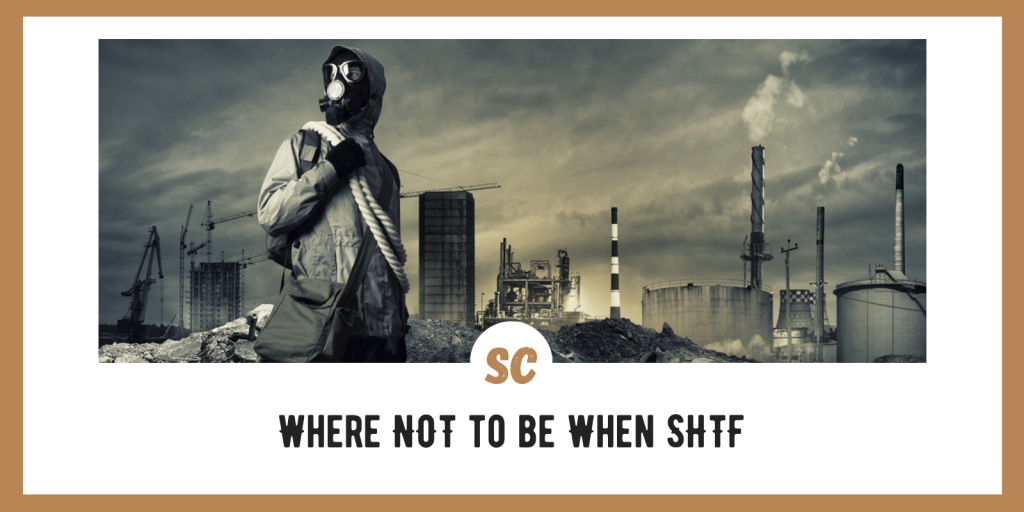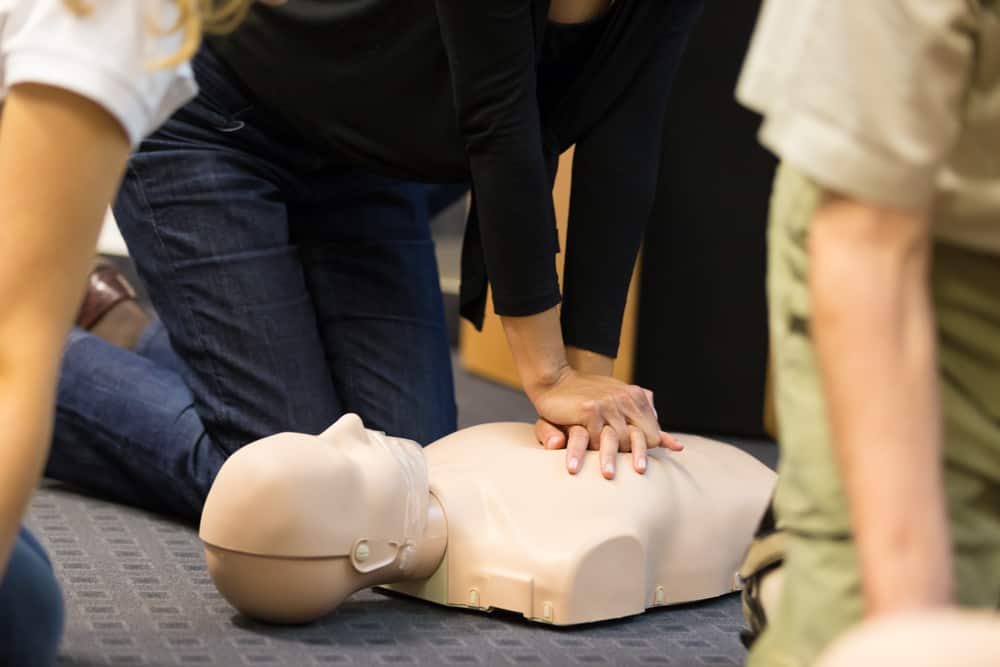I was giving this topic some thought the other day and there are a lot of places you do not want to be when SHTF.
This may seem obvious in terms of the event itself and its effects. For example, if there is a category five hurricane rolling in it is a good idea to get out of its path until it has blown over.
Interestingly, I will not be approaching this article based on a specific event or even a handful of them. There are far too many to list and an equally long list of their side effects.
Instead, I am going to approach this by looking at the one dangerous constant that all disasters have in common.
SKIP AHEAD
A Little Clarification
While I am a cautious individual, I almost always give a person the benefit of the doubt over people. This reminds me of a quote from a silly movie made years ago, Men In Black.
In the scene, Will Smith is talking to Tommy Lee Jones about telling people about the existence of aliens rather than keeping it a secret. People are smart and can handle it, Will Smith says. Tommy Lee Jones replies:
“A person is smart. People are dumb, panicky, dangerous animals and you know it. Fifteen hundred years ago, everyone knew the Earth was the center of the universe. Five hundred years ago, everyone knew the Earth was flat. And fifteen minutes ago, you knew that humans were alone on this planet. Imagine what you’ll know tomorrow.”
Admittedly, I am only interested in the first sentence as it relates to this article, but I gave the whole quote because I do not like to take things out of context.
Even though the movie has to do with aliens, the sentiment of the first sentence still applies to the topic at hand. When push comes to shove, the herd will stampede, and people will be looking out for number one.
5 Places to Avoid When SHTF
Large Cities
What’s considered a large city, you may be asking? If the city you live in has a rush hour in which you can get stuck in traffic, then it’s a large city.
If you live in such a city and have a warning to SHTF, I strongly recommend leaving. Most cities are completely dependent on outside resources to survive.
Once those supplies stop coming in there will be hundreds of thousands or millions of people fighting over meager necessities.
Unfortunately, the same can be said for suburbs. Also, once people are done in the city, where do you think they will head next?
Do Not Get Cornered
There are a lot of places that should be avoided for this very reason. Cornering yourself means you have put yourself in an area that only has one way out and that is a dangerous position to be in.
If you live at the end of a road or another area that only has one way out, you should probably find a safer location.
Stay away from main roadways and bridges. These areas can quickly become congested, and you can easily find yourself in a permanent gridlock.
Public transportation should be avoided as well. They will become targets for the masses of people who are looking for a way out. How are people going to react when they are turned away because the bus is full?
Don’t get me started on subways. When the SHTF there is a good chance that the power grid may go down and I do not think you want to find yourself stuck on an elevated railway or worse, underground.
Do Not Go Shopping
When I hear people talking about getting those “last minute items,” I usually shake my head. I get it, it is hard to have everything you need all the time, but this is why people preach about being prepared.
It is not time to go grocery shopping or to go to any store for that matter when the SHTF. That time has passed. It is time to make do with what you have and stay in a safe location.
Also, you will not be the only person with the idea of going to the store during this time. Chances are you will not find what you are looking for and the possibility of violence will be higher.
Police Stations, Fire Stations, and Hospitals
Wait, what? Aren’t people supposed to go to these places when times are bad? Yes, which is why there will be a lot of people there.
These locations are often deemed safe zones during a disaster so people will flock there in mass, not to mention the people that are injured or that need help.
During normal times, these places may be understaffed and if a disaster is bad enough, staff members may leave to look after their own families.
Obviously, if you have a serious problem or injury then you can try to go to one of these places, just be cautious.
Aid Camps
When or if aid camps are set up, they are probably going to be horrible places to be because they will be overcrowded with sick, injured, desperate individuals.
On top of that, they will likely be set up in gymnasiums, sporting arenas, large venues, or be fenced-in areas. Remember what I said earlier about not allowing yourself to be cornered? Yeah, that applies here as well.
So Where Should You Go?
Not anywhere that is on this list! Seriously though, when things go south in a very bad way, there are two things you are going to want to do.
First, get a safe distance away from the event itself.
Secondly, it is best to keep your distance from large groups of people.
If your home is in a safe area, then stay there. Even if you do not have week’s or months’ worth of supplies, it is much safer to stay put and make do, at least until things blow over.
Again, depending on the event, almost anywhere outside of a major city is going to be safer than being in it. Go to parks, camping areas, rural backroads, friend’s or family member’s property, anywhere that is away from the chaos.
Wrap Up
I know it seems like this article paints a bad picture of people and their behavior during difficult times, and that is not always the case.
The truth of the matter is that sometimes people come together and help one another out. But overall, that usually happens after the dust has settled.
Do your best to be prepared so that you can be safe and avoid dangerous situations when they arise.
Thanks for reading.
What are some places you think should be avoided when SHTF? Sound off in the comment section below and let us know!




